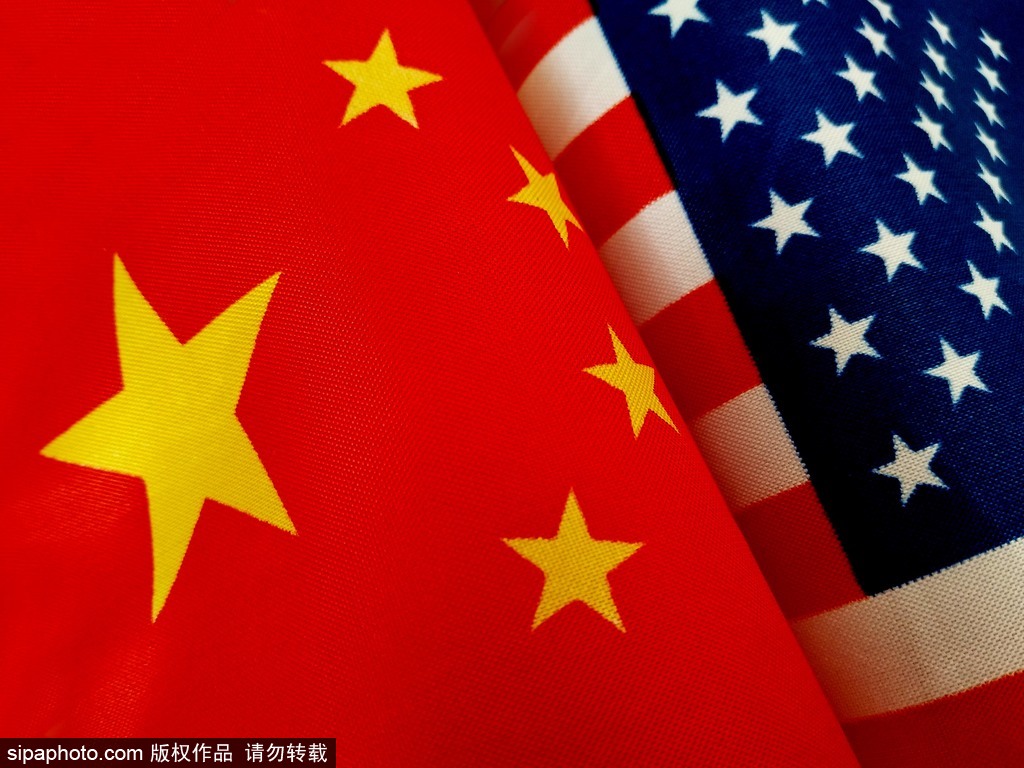Diplomat: US should accept China as it is
By ZHAO HUANXIN in Washington | China Daily Global | Updated: 2020-08-26 12:18

A former top US trade envoy and veteran diplomat said Tuesday that it's misleading to label cooperation with China a failure, and it's dangerous to have the relationship precipitate toward free fall, which may cause miscalculations.
"There's a new conventional wisdom that has crept in that cooperation with China failed and that infuses a lot of the thinking," said Robert B. Zoellick, a former US deputy secretary of state and US trade representative. "I hope people don't take for granted some of the things that have been accomplished with China."
Speaking at a virtual book launch event at the Peterson Institute for International Economics, Zoellick listed a litany of things that challenge the assumption that cooperation with had China failed.
Zoellick's new book, America in the World: A History of U.S. Diplomacy and Foreign Policy, explores the traditions of US foreign policy.
The topic has been revived by US Secretary of State Mike Pompeo's July 23 speech at the Nixon Presidential Library in California, in which Pompeo declared that the former president's outreach to China a half century ago had utterly failed.
Zoellick said that drawing from America's experience, people have held the belief of China as the "great commercial dream", the great commercial market.
"To be fair, China was our fastest-growing export market for 15 years prior to the Trump administration," which embraced protectionism, Zoellick said. "There's a lot of US companies, a lot of US workers that have benefited from that relationship."
Still, China is the third-largest market after Canada and Mexico for US goods exports, valued at nearly $105 billion last year, according to statistics from the US-China Business Council, which reported in a survey two weeks ago that 91 percent of US companies operating in China are profitable.
In the latest sign that the two countries are seeking to improve trade relations, top trade officials on Monday reaffirmed their commitment to the phase one trade deal they signed in January.
At Tuesday's event, Zoellick said China cut its global current account surplus from about 10 percent of GDP to around zero, meaning that its demand has fueled worldwide expansion.
He also said Beijing had the greatest stimulus program in the global financial crisis in 2008 to counteract what could have been another depression.
"If we approach this (China relationship) with the idea that cooperation produced nothing, you're misleading yourself about what can be accomplished," he said, citing the example of intellectual property rights (IPR) protection, a chronic complaint from some foreign businesses and the Trump administration.
"Many people may know China has actually created these courts. They're finding for foreigners about 90 percent of the time," he said, referring to the new Chinese IPR courts.
In an article titled "The China Challenge" published in the March-April issue of The National Interest magazine, Zoellick also said those courts have ruled in favor of the "vast majority of international complaints".
"If you're going to deal with the world of climate change, or pandemics and biological security, or economic growth or proliferation, you're going to need to figure out a way to work with China," said Zoellick, who was president of the World Bank Group from 2007 to 2012.
He said the problem with the US' China policy is that people want to have a "simplistic" solution, and that's not going to work.
"I guess what I would counsel people is, whatever your view is on Chinese performance and behavior, ask yourself what you want to get done and how you're going to try to achieve it with others, as opposed to just throwing global bombs," he said.
He noted that one of the US' traditions is to try to convert China, wanting the Chinese to be like Americans through Christianity, republicanism and capitalism.
"You can see when China decides not to become a 'junior America' but instead to become China, there's a very harsh reaction," he said.
"So I guess my starting point is, it's always useful to recognize China as it is, as opposed to how we might want it to be," Zoellick said.
In his National Interest article, Zoellick said, "We are now witnessing just the vanguard of woes for America and China — and the world — if the two major powers slide into mutual animosity and zero-sum calculations."
He further cautioned Tuesday that the US-China relationship, which is in free fall right now, is "quite dangerous".
"People need to be aware that miscalculations can happen. And issues with Taiwan and others can sort of move to a dangerous zone," he said.
This echoed his earlier warning that a slide into Sino-American conflict, whether intentionally or by accident, would lead to "incalculable costs and dangers".
"Americans need to represent our country abroad as purveyors of principles, as well as commerce, treating people from other lands with dignity and respect. And the United States needs to cooperate with China to mutual benefit while managing differences," he wrote in the article.
























